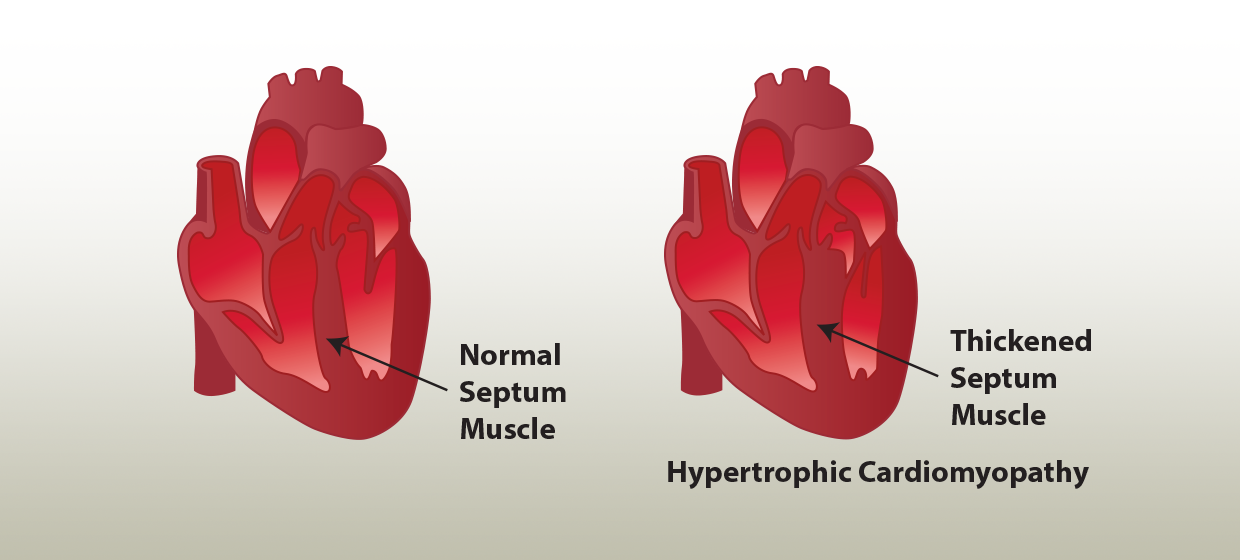Cardiomyopathy is the disease of the heart muscle. There are many reasons why this can occur including coronary artery disease, high blood pressure, certain viruses and genetics. Cardiomyopathy usually results in an enlarged heart and ultimately heart failure.
Types
Dilated (congestive) cardiomyopathy –Most common type; the heart cavity is enlarged and stretched, making it less able to pump blood out of the heart.
Hypertrophic cardiomyopathy – Is a thickening of the myocardium (heart muscle). Most commonly occurs in young athletes and is one of the leading causes of sudden cardiac death.
Restrictive cardiomyopathy –Least common of the three types; the heart muscle cells (myocardium) in the ventricles become very rigid, causing poor blood flow or pump action of the heart.
Symptoms
Signs and symptoms may mimic those of almost any form of heart disease. Chest pain is common. Mild cardiomyopathy is frequently asymptomatic; severe cases can be associated with heart failure, irregular heartbeats, swelling in the extremities, and/or a sudden weight gain. If you’re experiencing any of these symptoms, consult a MemorialCare Physician partner.
